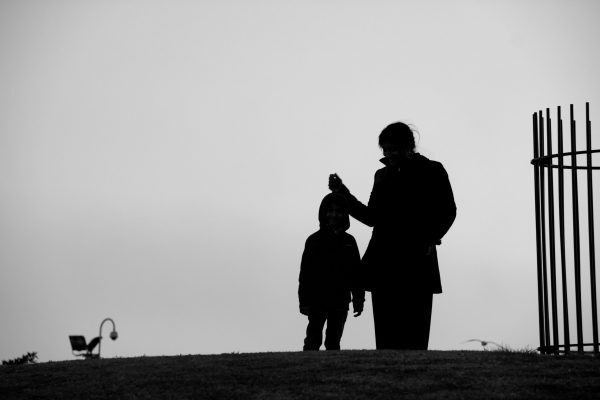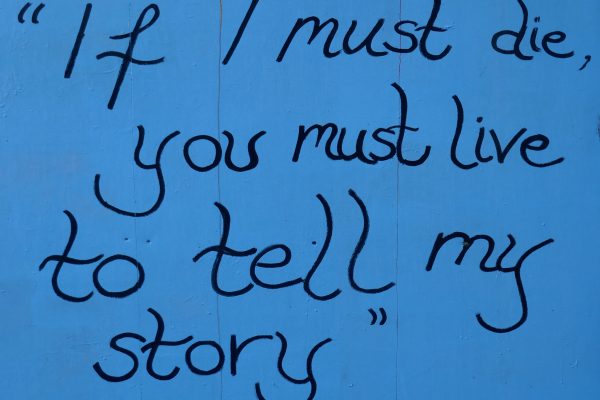It is not easy to critique the Rev. Eugene F. Rivers, 3d’s “Beyond the Nationalism of Fools.” It may be easier to dismiss it as a rambling, incoherent, and mostly contradictory set of intemperate musings, erected on a flimsy base of inadequate knowledge of African-American history.
Rivers seems to suggest that integrationism has failed, but that contemporary Black nationalist leaders and scholars are “fools” — “Their trains, unlike Mussolini’s, do not run on time; in fact, they do not run at all.”
He seems to hint that the white- and Jewish-made Black scholars (Skip Gates, Cornel West, et al.) are too preoccupied with “fame and fortune.” Yet Adolph Reed, who criticizes this group , is simply “presenting himself as the only smart native in the jungle….”
Having dismissed contemporary Black nationalists as “fools” (Minister Farrakhan, Len Jeffries — even the humble writer of this critique gets an unfavorable mention), Rivers then elevates to “serious” nationalist status as eclectic a conglomeration of integrationists, Marxists, and, yes, a few nationalists as you could ever hope to hear mentioned in one breath. They include W.E. B. DuBois, Paul Robeson, Frantz Fanon, Aimé Césaire, Walter Rodney, C.L. R. James, and others. Not one of those mentioned here would have accepted the designation “nationalist.” Some were cultural (but not political) nationalists at one point or another (as are most integrationists: liking jazz, African sculpture or gospel music does not a political nationalist make). DuBois flirted with real nationalism in the 1930s, was promptly forced out of the NAACP, and later returned to integrationism, among other things. Robeson allowed himself to be shamelessly exploited on stage and screen in the 1920s and ’30s. He dutifully sang “Niggers all work on the Mississippi” for Jerome Kern and Oscar Hammerstein III’s Showboat. The early Rodney of Groundings With My Brothers probably comes closest to nationalism of anyone in this group. He developed thereafter into a great foe of African nationalism. Nowhere in Rivers’ long list of nationalists do we find the names of Marcus Garvey, Malcolm X, or Elijah Muhammad.
Black or African nationalism revolves around what Marcus Garvey called “race first”, the need for an oppressed people to harness its resources and take charge of its struggle towards equality and empowerment. It does not necessarily eschew all coalitions and it does not preach racism. It does, however, reject external leadership, whether from the right or the left, and it does assert the right to define its own reality.
Rivers, like the generality of anti-nationalist critics, camouflages his disdain for African self-reliance with attacks on straw-persons of his own creation. He talks about the “stupidity of defining Black culture around antisemitism,” but no African nationalist in history has ever done such a thing.
He says that “Black nationalism is rooted in politics, culture, and history, not biology.” Yet no important nationalist has ever based a program on biology alone. Strange to say, DuBois the sometime cultural nationalist, in his 1897 essay on “The Conservation of Races,” probably came closer to an exclusively biological position than such major 19th and 20th century nationalists as Martin Delaney, Marcus Garvey and others.
Rivers also waylays and mugs the straw man of “forced racial segregation,” implying that the “fool” nationalists have advocated this bizarre position. But advocating a strong community, if even it lives in a contiguous place, is not “forced racial segregation.”
Rivers seems preoccupied with “antisemitism,” perhaps his most imposing straw monster. He never really delves into this, but ritually denounces it from time to time. Yet he embraces Harold Cruse as a good nationalist (and invited him to speak in Roxbury recently). Cruse has long been denounced by Rivers types as “antisemitic.”
W.E. B. DuBois seems to reign supreme in Rivers’ pantheon of good integrationist and nationalist heroes. But DuBois, too, has on occasion been considered antisemitic. No less a person than the Jewish historian Herbert Aptheker has documented the forced expunging of references to Jews in DuBois’ Souls of Black Folk, over fifty years after its original publication. DuBois had referred to Jewish immigrant landowners becoming heirs to the southern slaveowning plantocracy, a most antisemitic thing to the bowdlerizers of his work.
A little knowledge is a dangerous thing, and it shows in Rivers’ essay.
In so far as there can be said to be a core to Rivers’ musings, it comes from a most unexpected source. For Rivers’ “Nationalism of Fools” is really a warmed-over summary of Martin Luther King’s last book, Where Do We Go From Here ? Chaos or Community? The main outline of King’s book is all here — the statistics on African-American deprivation, the failure of integration (yes, King was saying this nearly three decades ago), the intransigence of anti-African racism, even the ritualistic and non-contextualized allegations of Black “antisemitism.” And where King attacked Marcus Garvey and other nationalists, Rivers simply substituted Minister Farrakhan, Len Jeffries and the humble writer of the present critique. Only on the question of Frantz Fanon did Rivers deviate from King. King attacked Fanon as an ideological mentor of the Black Power generation (more for his views on violence than for any alleged nationalism). Rivers considered Fanon a good nationalist.
As in the case of the mountain who labored mightily to produce a mouse, Rivers’ eclectic ramblings culminate in a call for a series of scholarly conferences along the lines of Du Bois’ famous Atlanta gatherings, whose results were published between 1896 and 1915.
He hopes this way to reconnect African-American intellectuals to the regular everyday folks in their own communities. He does not seem to realize that the nationalist scholars he deprecates never lost this connection. He seems unaware of the hundreds of forums around this country and overseas where the nationalist scholars ground continuously with their people. He seems unaware of organizations like the Association for the Study of Classical African Civilizations (ASCAC), where scholars and lay people combine in a unique undertaking of joint academic and practical endeavor.
The central question, which Rivers never addresses, is: who appoints African-American leaders? Many (though not all) of those he favors are artificial creations of the media with little standing in their own communities. Bringing Skip Gates and Cornel West to the outskirts of the African-American community, there annually to address a specially bused-in audience, probably will accomplish little, especially when combined with the vilification of those leaders and scholars who enjoy the esteem of their people.





